Invictus – The Poem
Out of the night that covers me,
Black as the pit from pole to pole,
I thank whatever gods may be
For my unconquerable soul.
In the fell clutch of circumstance
I have not winced nor cried aloud.
Under the bludgeonings of chance
My head is bloody, but unbowed.
Beyond this place of wrath and tears
Looms but the Horror of the shade,
And yet the menace of the years
Finds and shall find me unafraid.
It matters not how strait the gate,
How charged with punishments the scroll,
I am the master of my fate,
I am the captain of my soul.
~ by William Ernest Henley
The Invictus Story
Once upon a time, millions of years ago in the country of Eumaxa located on the Western Frontier of the continent of Pangea there lived a little boy named Zuma Baan Matata. He was 11 years old and lived with his parents. Zuma was a normal guy with an above-average IQ, he loved animals and nature. He had exceptionally good catching power and was learning all the subjects in his school well, be it numbers, or warfare, or economics, or painting and writing. But he loved writing and painting the most, so he would spend most of the time doing that. He owned a variety of animals, a cat, few hamsters, a cow, a roxasaur (a kind of rabbit-like dinosaur), a few birds, etc. He had such charm over animals that even the wildest of them would obey them.

His father, Cox Matata, was working two shifts under the government of King Doma so that he could earn extra cash to build a small garden for Zuma outside his little apartment. The first shift was on the farm, towards the production of ganje a kind of cannabis. Gange export was one of the major sources of revenue for the government and also since it was an addictive drug, the countries importing the same would become more and more dependent on Eumaxa and weaker to rebel. The second shift he was working in a factory that produced fire weapons (the new technology weapons which none other countries on earth possessed).
One night while working in the weapon factory, there was a blast, that killed Cox along with 42 other workers working there and injuring several others. The king always wanted to produce the finest weapons at the lowest possible cost, so he never really gave head to the safety of the workers, which involved a cost. The news of Cox’s death got to the nerves of his pregnant wife, Shunai Baan. She collapsed due to cardiac arrest, on hearing the same. So that night Zuma lost both his parents and a sister he was expecting.
Since he had no one to live with, he went on to live with his grandmother. This was the first time really in his life that he got to know her. She was a very gentle and kind woman, and soon he realized where his father’s charm and warmth came from. But she can’t replace his parents. As time passed he realized, losing his parents wasn’t as difficult as learning to live without them. While growing up he developed a friendship with Toron, a guy who lived in the neighborhood. Both had a similar interest in fine arts and animals.
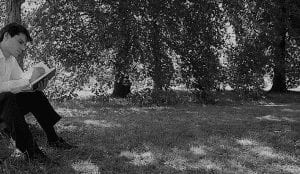
Soon when they finished the schooling, Toron had to move to another village as both he and his father got posted to a government job. That was a little unendurable for Zuma.
And now it was time for him to chose an occupation. He wanted to be a painter or writer, but the current government wasn’t in favor of promoting art and literature. They wanted men for the workforce in factories and as an army. Zuma had fairly good skills with these works as well. The government and its rules would never allow him to choose any other occupation. According to article 311 of the Conduct and Occupations Act, if persons with a score of more than 4/10 and a fitness evaluated as normal, chooses an occupation other than the ones listed in Schedule IX of the legislate, s/he would not be entitled to any remuneration from government or any other private entity within the state of Eumaxa, and will not be entitled to any government benefits. And failing to comply with any regulation (which means choosing any other occupation) meant a jail of 2 years. This meant he wasn’t left with any option.
He couldn’t give in to the atrocities of the government cast on the public. He had to fight. So he started writing papers that would be circulated in the area to educate people and gather them to revolt against the unfair laws. When the government came to know of the revolution, they arrested him on the charges of ‘anti-nationalist’ movements. But that wasn’t a problem, he was anyways not getting money when he was out in the city, in jail he was getting food.
Already life hadn’t been kind to him, and now the slap of these regulations on his face. Despite the brutalities that life had cast on him, he never gave up. He always believed in his father’s sayings, “always live in the present, neither past nor future”. He always said, “keep a note of the fact that you can breathe. And if you are breathing evaluate all the steps you take, stick to those that deem right to your soul”. Even in jail, he did not give up. He continued doing that, which filled up his soul. He wrote a novel and a book of poetry compilations for the next five years.

In his fourth year in jail, there was another inmate who was allotted the same room as him. He was convicted of crimes related to foreign exchange dealings. He was from a small county from the eastern borders called Moorville. Soon they developed a good friendship. He used to read his poetry in his free time. He loved it so much, and he knew that if presented the same in the kingdom of Moorville, it would be highly appreciated and rewarded. So he suggested that if Zuma could not sell it to any entity withing his country as per laws, but he could sell it outside and earn a better living. And that, there were many counties in the east who had such a fine taste in art and literature, so he could do business there or maybe settle in there. He would be more than welcome in the eastern countries.
Zuma always stuck to what he thought was right and was persistent with that. He was truly the ‘master of his fate’ and the ‘captain of his soul’.
After he left jail, he took his grandmother and settled in Moorville. There he was declared the official artist and writer in the palace, a highly reputed honor. He also got married to the beautiful daughter of the king. He truly emerged as the ‘Invictus’ one.
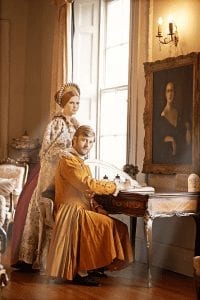
William Ernest Henley
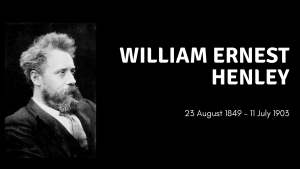
William Ernest Henley (23 August 1849 – 11 July 1903) was an influential English poet, critic, and editor of the late Victorian era in England. Though he wrote several books of poetry, William Ernest Henley is remembered most often for his 1875 poem “Invictus”, a piece that recurs in popular awareness (e.g., see the 2009 Clint Eastwood film, Invictus). A fixture in literary circles, the one-legged Henley was also the inspiration for Robert Louis Stevenson’s character Long John Silver (Treasure Island, 1883), while his young daughter Margaret inspired J.M. Barrie’s choice of the name Wendy for the heroine of his play Peter Pan (1904).
To read more about W. E. Henley, click here.
Invictus – Poem Analysis / Summary
Invictus is undoubtedly the most inspiring poem that I have ever read. This is one such poem that you want to read over and over again, to yourself. I feel almost everyone goes through difficult times in their lives, and everyone has their own way of dealing with it. I won’t say this poem is absolutely relatable, or anything, not at least to me. I wince at paper-cuts, I have cried at the smallest of the things such as not getting good grades in the exam, and it is so funny when you look back.
But I am also sure that you have also met someone in your lives, it could be your parents, your teachers, your siblings, your friends, your spouse, or even your house-help; those people who have been really strong in their lives. The ones who are actually unconquerable, whose heads are always unbowed in the direst of the circumstances, those mettlesome people; or as I like to call them “the INVICTUS’. This poem increases your admiration for those people. This poem makes you wanna become as strong as they are. And I believe, if you repeat those two lines to yourselves, “I am the master of my fate” and “I am the captain of my soul”, chances are, that you might actually become one. Or if you repeat these lines “I thank whatever gods may be, for my unconquerable soul”, you might actually attain that someday.
After reading this poem, I became a little curious as to what made Henley write such a masterpiece. And as I read about him, I came to know that as a young man he contracted tuberculosis of the bone, which resulted in the amputation of the lower part of one of his legs. The disease flared up again in Henley’s twenties, compromising his other good leg, which doctors also wished to amputate. Henley successfully fought to save the leg, and while enduring a three-year hospitalization, he wrote Invictus — a stirring charge to remember that we are not merely given over to our fates. While life can be terrible and brutal, we cannot sit idle while the storm is hitting us.
To read more famous poems by the finest writers ever, click here.
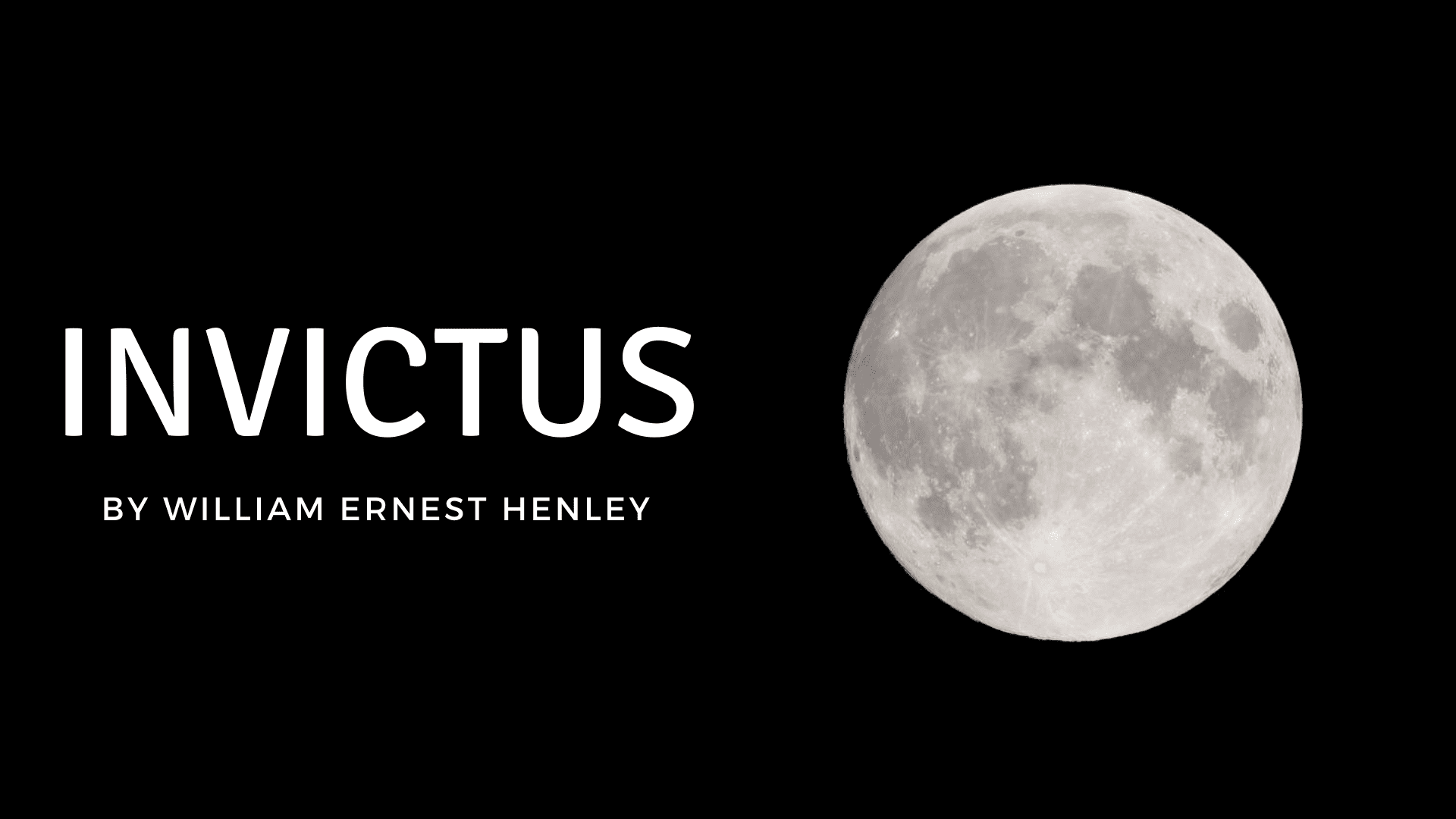

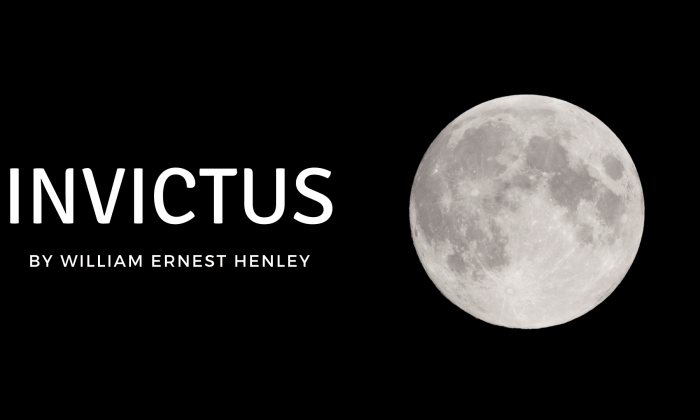






Beautiful and so inspiring!
Thank you for sharing:)